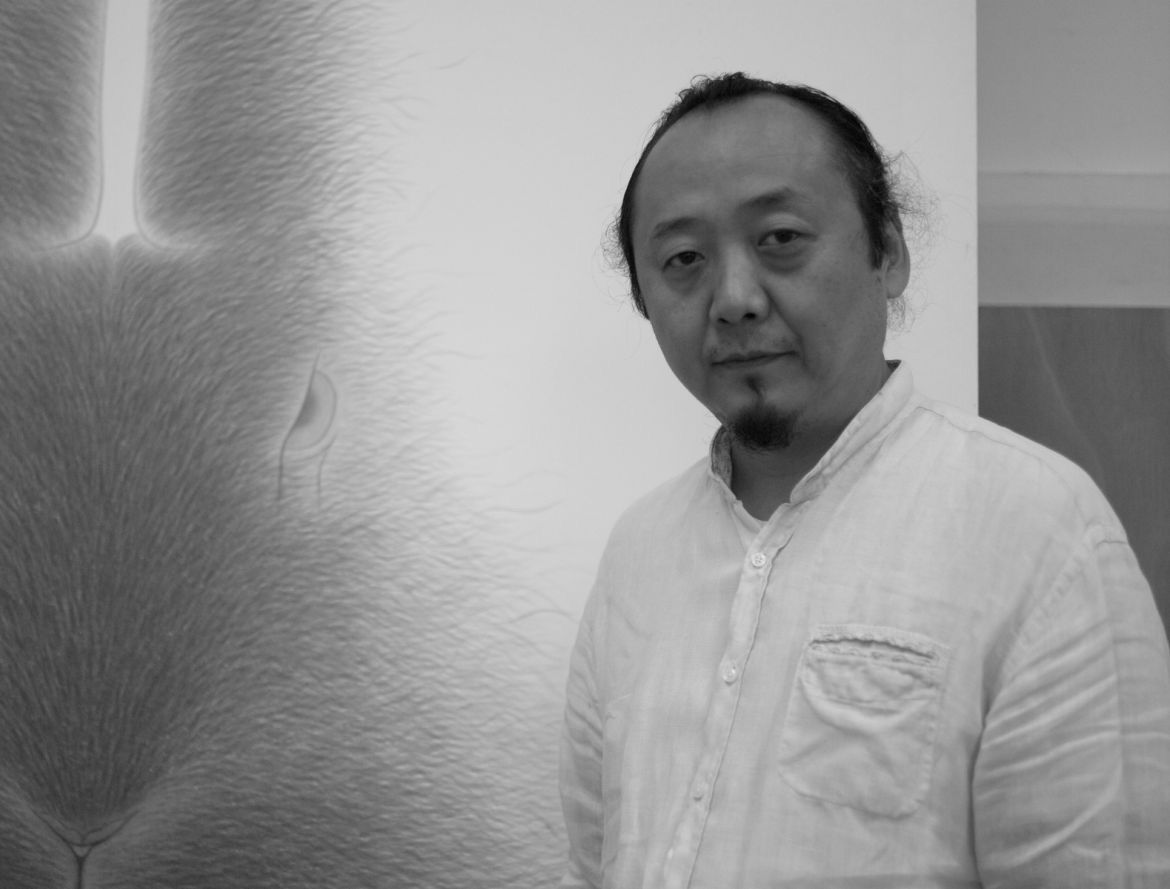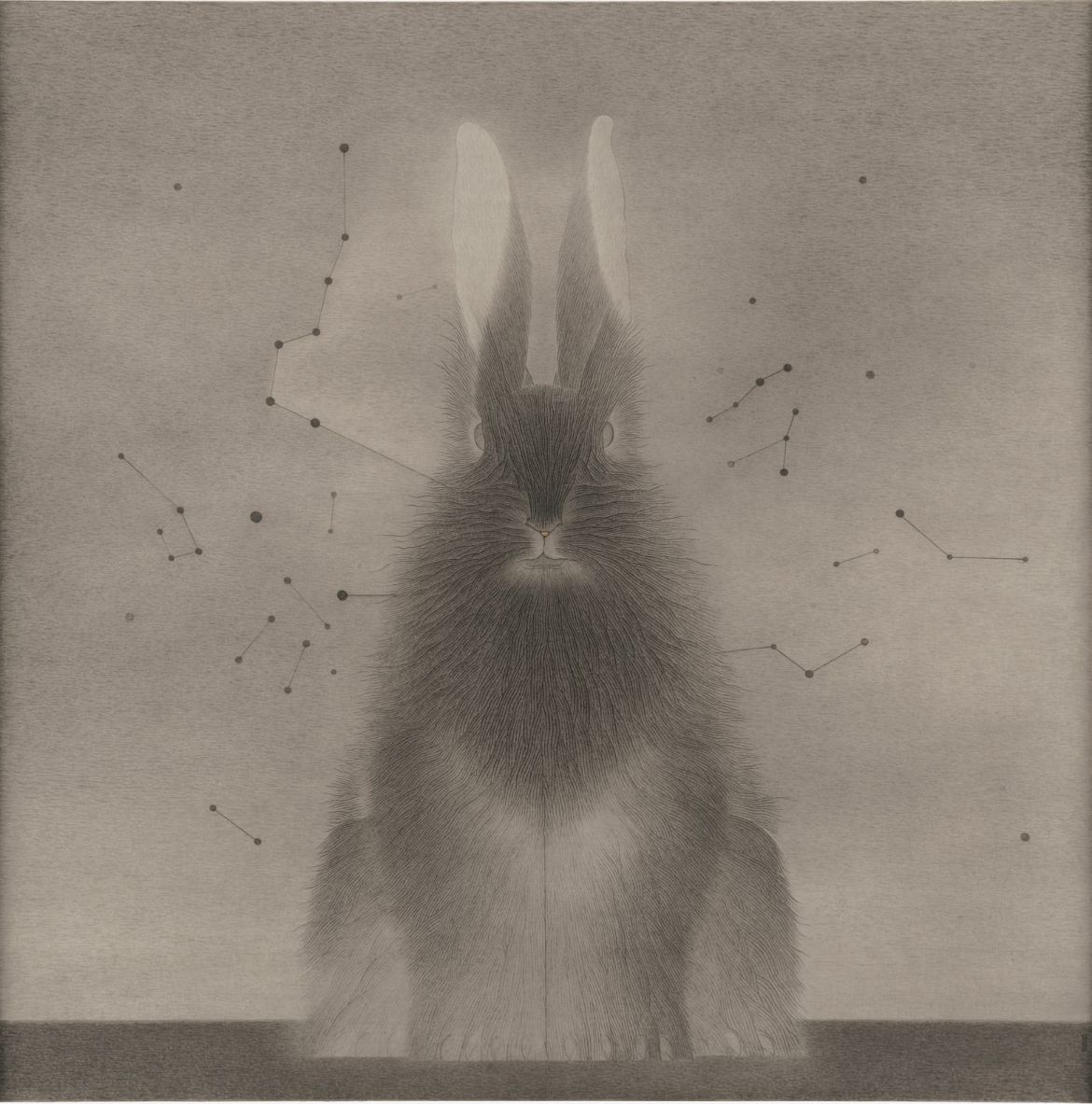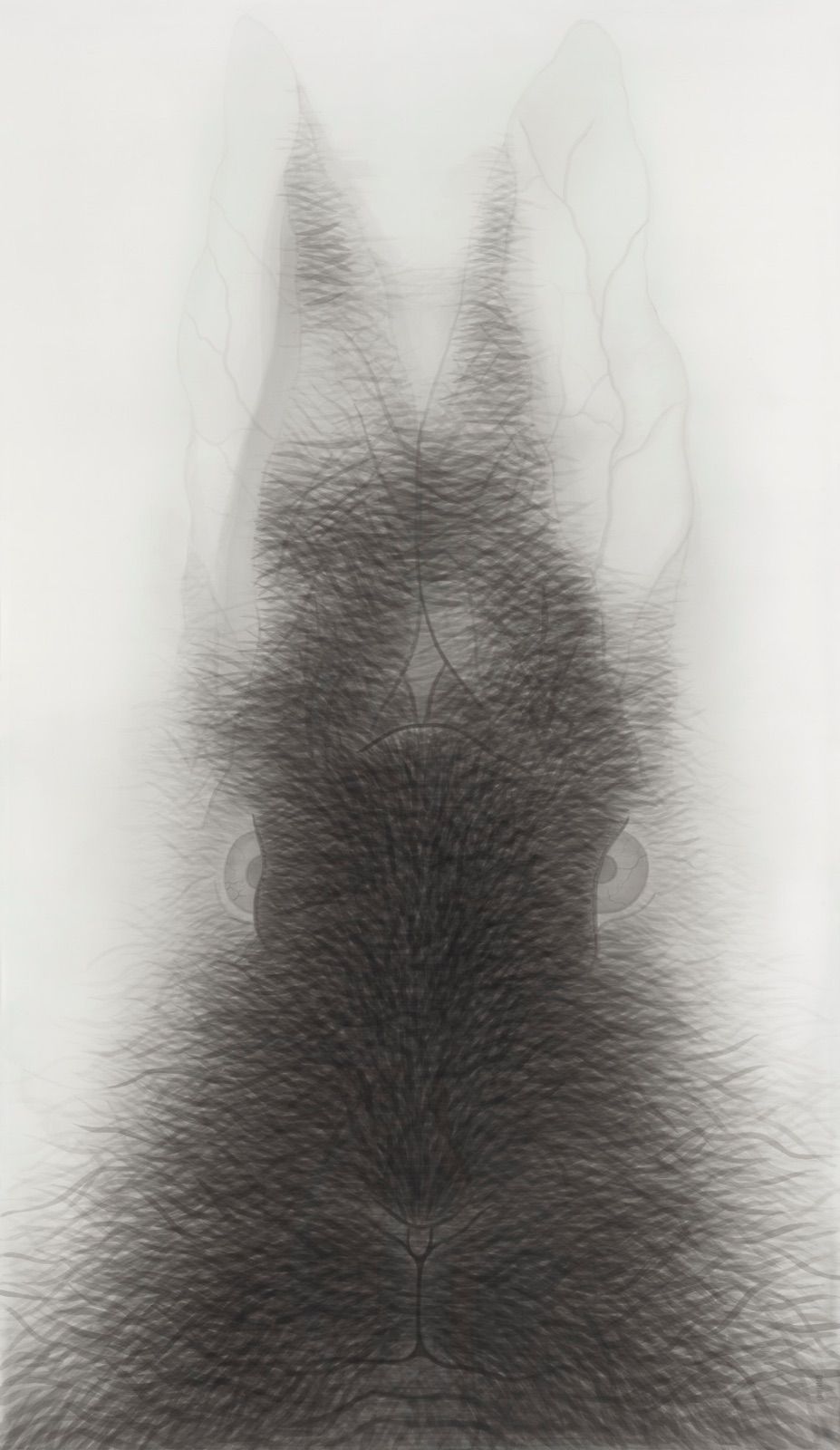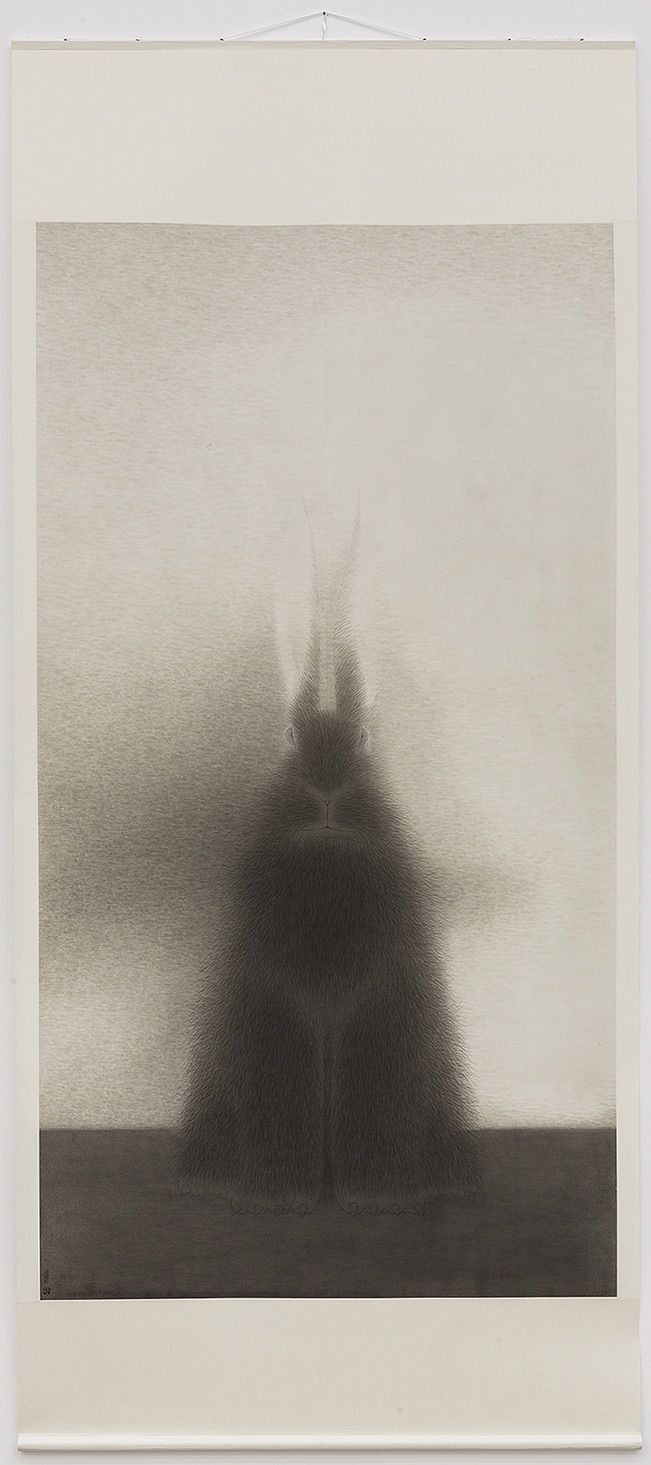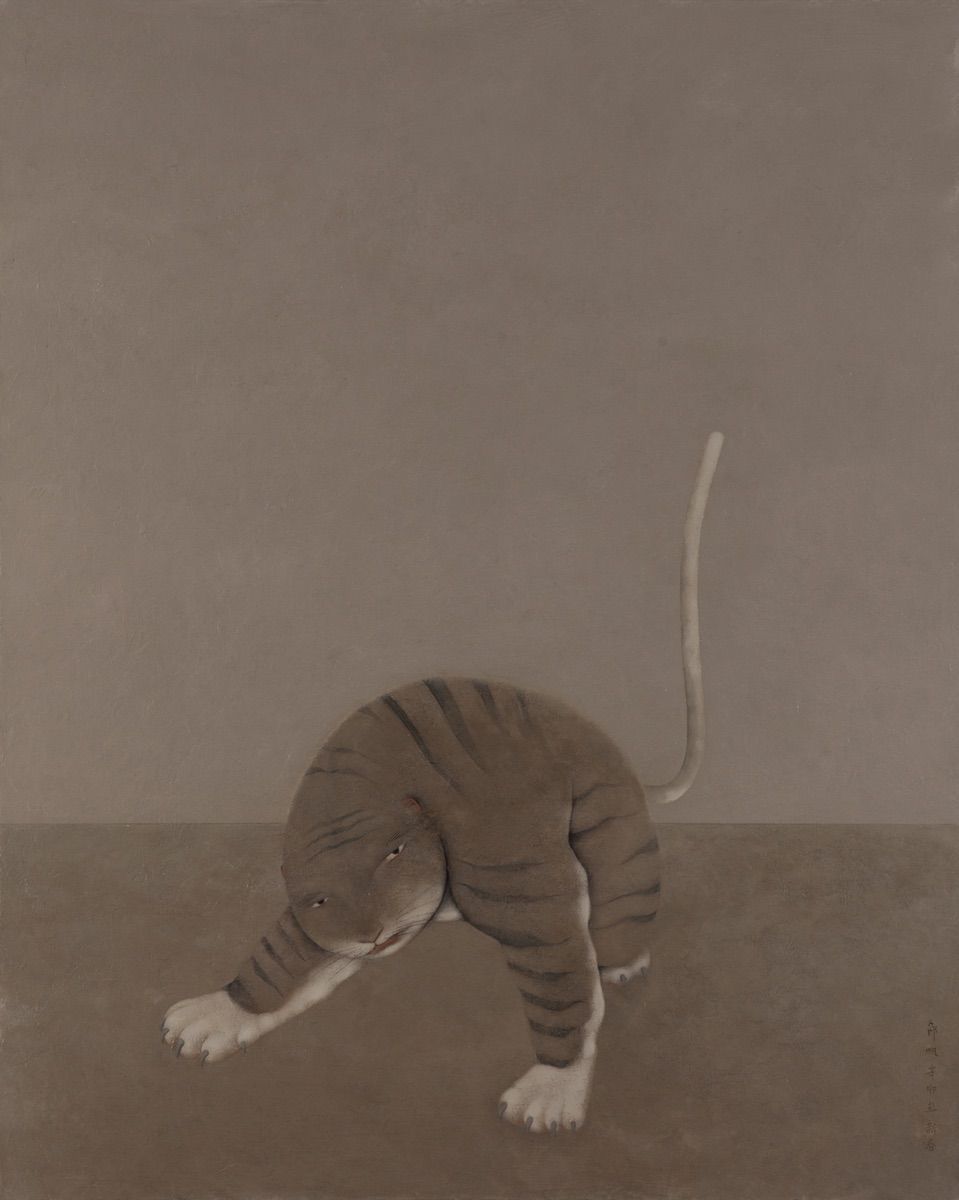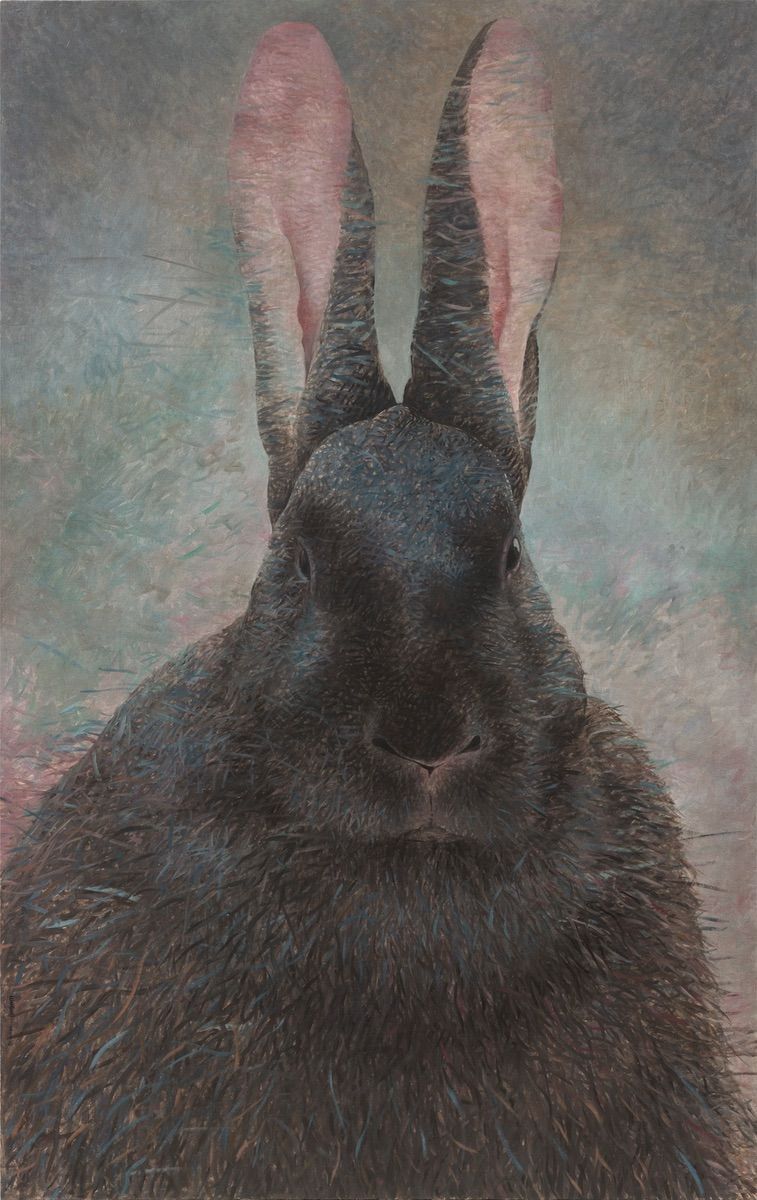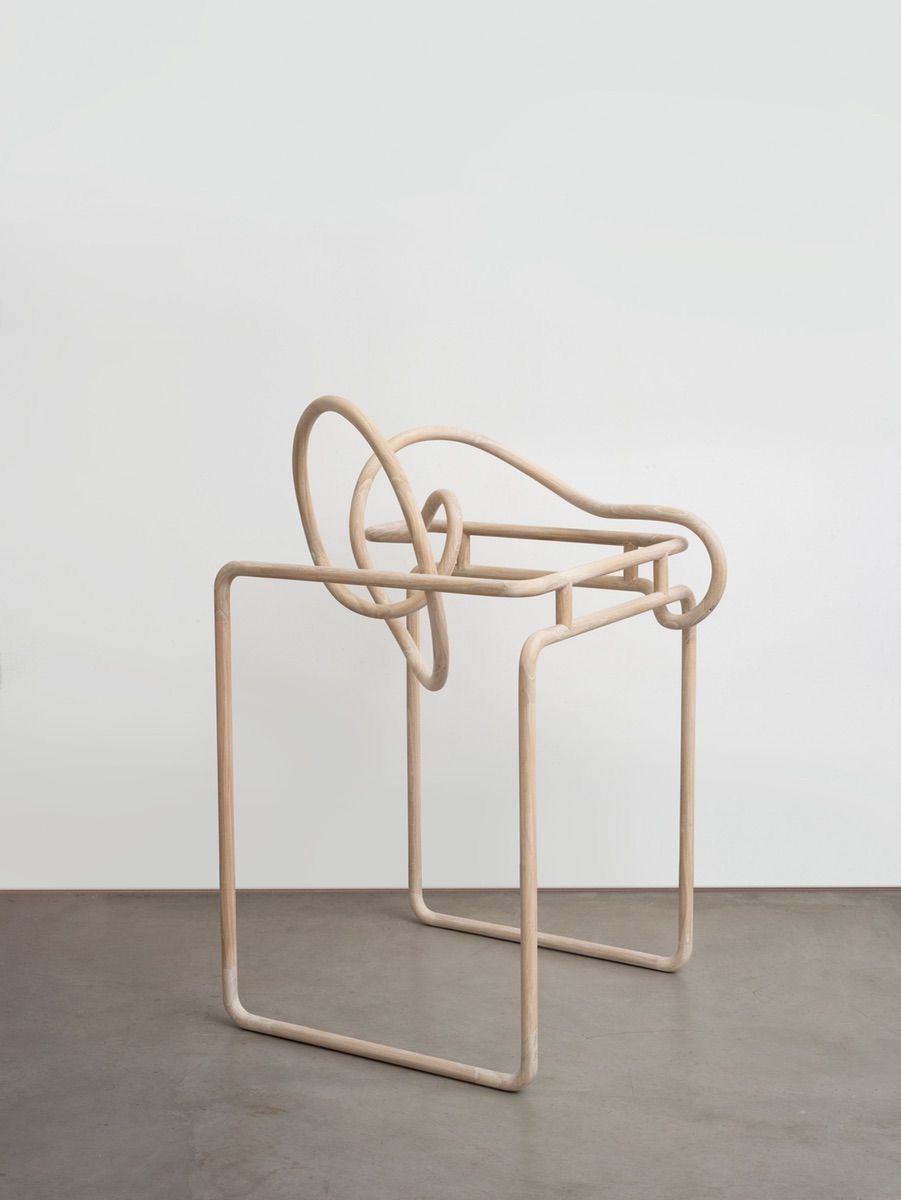
Shao Fan (Yu Han)
Shao Fan's (*1964) brush yields a profuse range of expression. From thousand over thousands little strokes, each signifying a single hair of a rabbit's coat, the volume of the animal infinitely grows. From a mixture of parallel streaks, hued washes, and scraggly lines—lines, which are alternately made to appear by the density of marks or the sudden absence of all information—an astrological formation looms. Closer scrutiny lays bare that the rice paper has been washed in several layers of thinned ink, revealing its structure slowly and resulting in subtle discolorations. The white specks, patches, and marbled lines affect an ethereal substance. The painterly planes and calligraphic traces are bound together in harmony; pulling the viewer into abyss.
Long live the hare and the rabbit
The protagonists of his monumental works are animals. Shao Fan particularly sees the rabbit and the hare as archetypes and hybrid creatures between man and animal. In doing so, he is in keeping with tradition: the rabbit and the hare are recurring subjects in traditional Chinese arts and crafts, although in China people do not distinguish these two animal species. In the Taoist tradition, the hare and the rabbit are associated with immortality and a long life.
“Today, we human beings always forget the animal side of us, either automatically or deliberately. But in fact the animal side of us is very precious.”— Shao Fan
A Chinese Journey
"...the future is elusive. I have no control over the future, I do admit. Therefore in my art I mix the past with the present, wishfully thinking that time can thus be stopped so that I can travel freely in time."— Shao Fan
Since 1988 Shao Fan's work has been part of the permanent collection of various museums worldwide, including the National Art Museum of China in Beijing, the Metropolitan Museum of Art in New York, and the Victoria, Albert Museum in London and the Royal Ontario Museum in Toronto.
Innovative and traditional
Shao Fan is also one of the first Chinese artists to explore the boundaries between visual art and furniture. Although the design of his Ming-style chairs is innovative, they are made using traditional methods. The chairs can be considered to be sculptures that recall functional furniture.
Video: Wang Yu
ARTIST INFORMATION
View more information of the artist, please click here.

